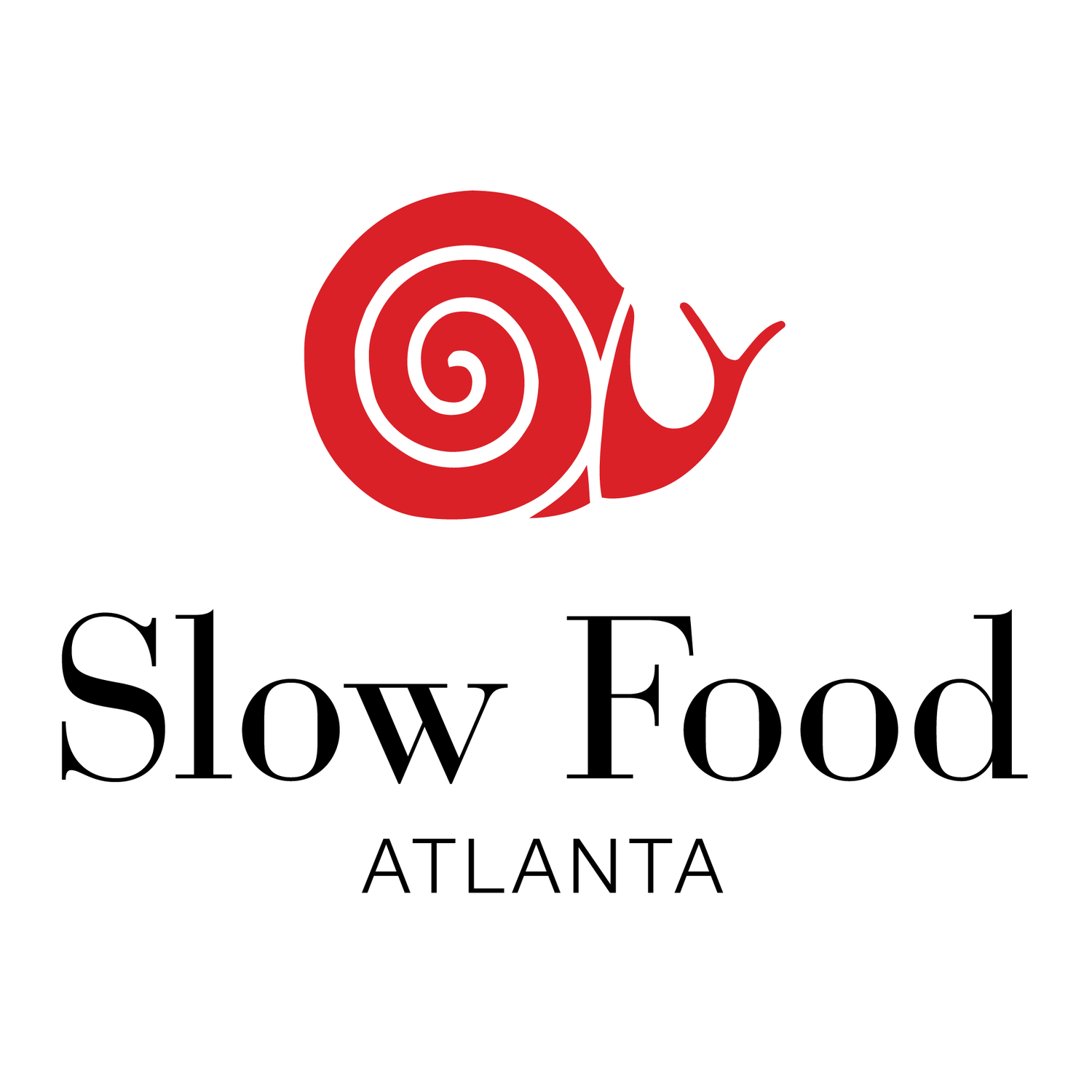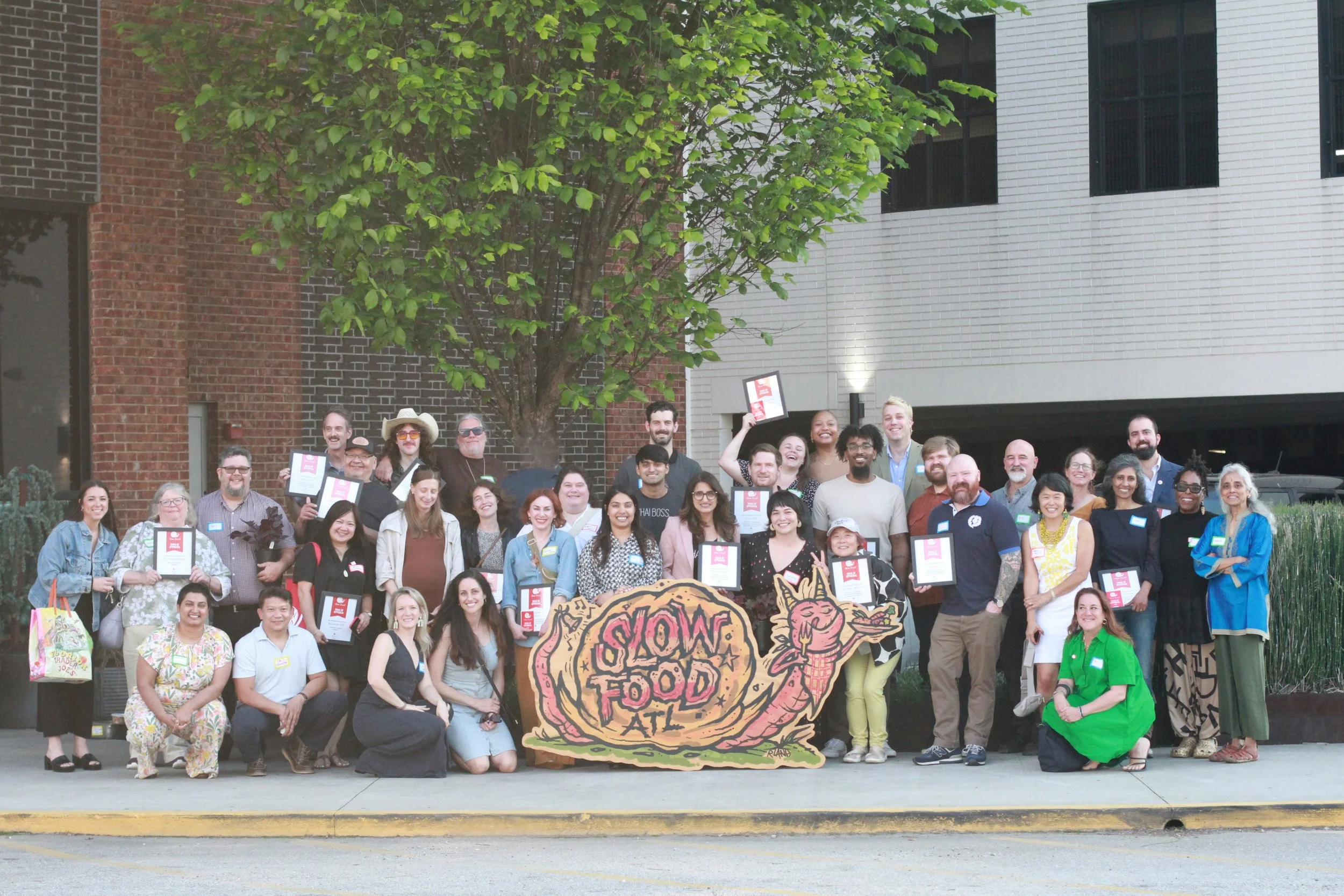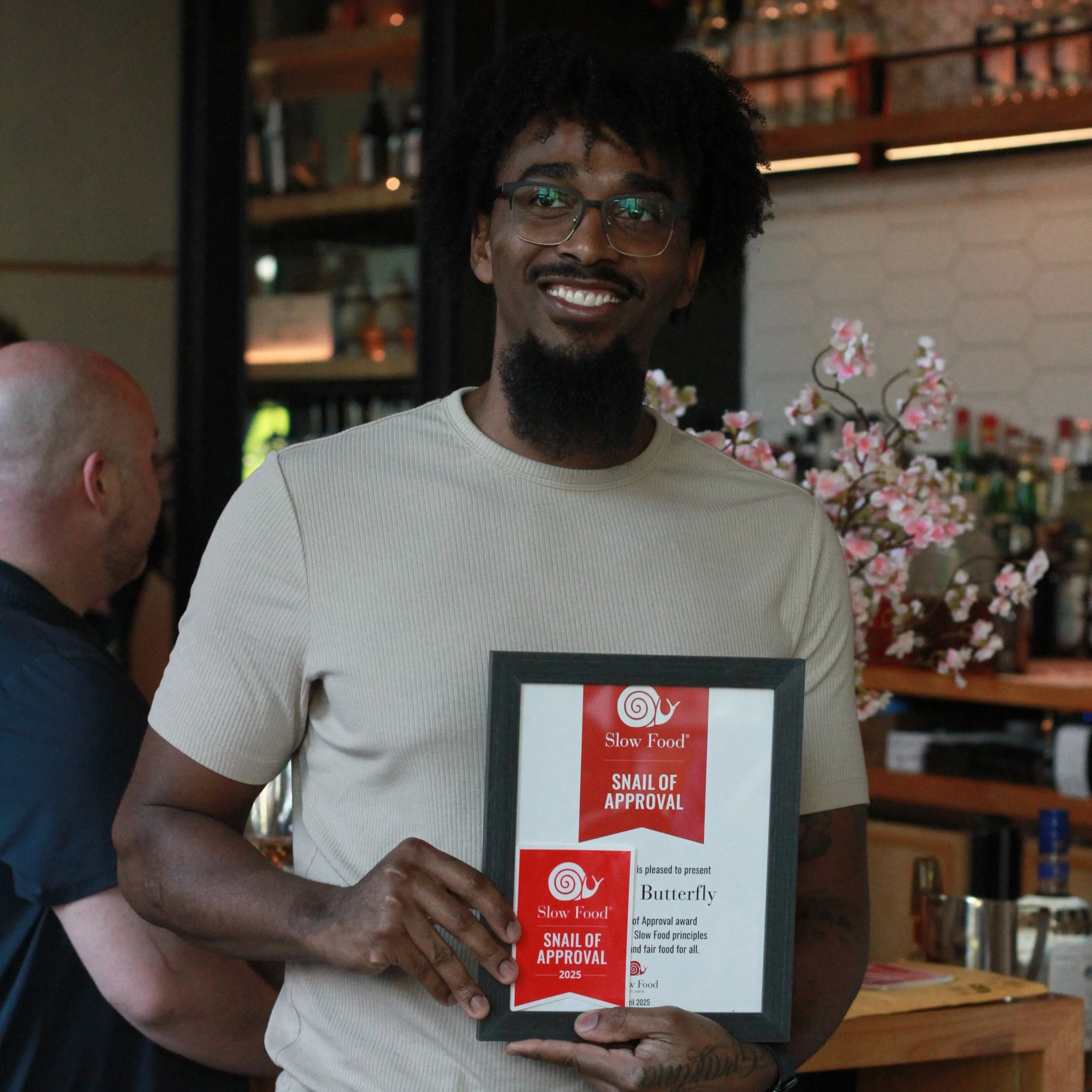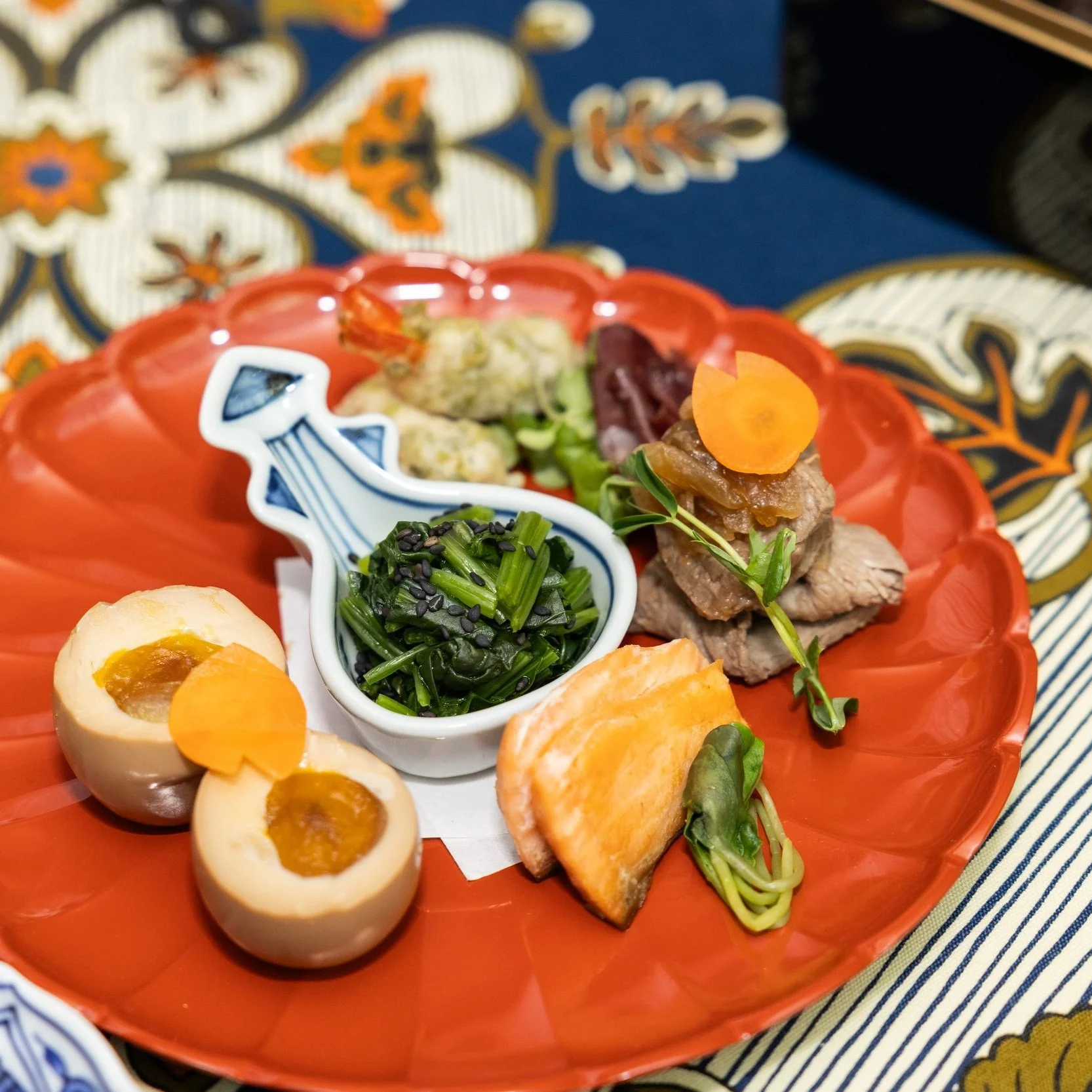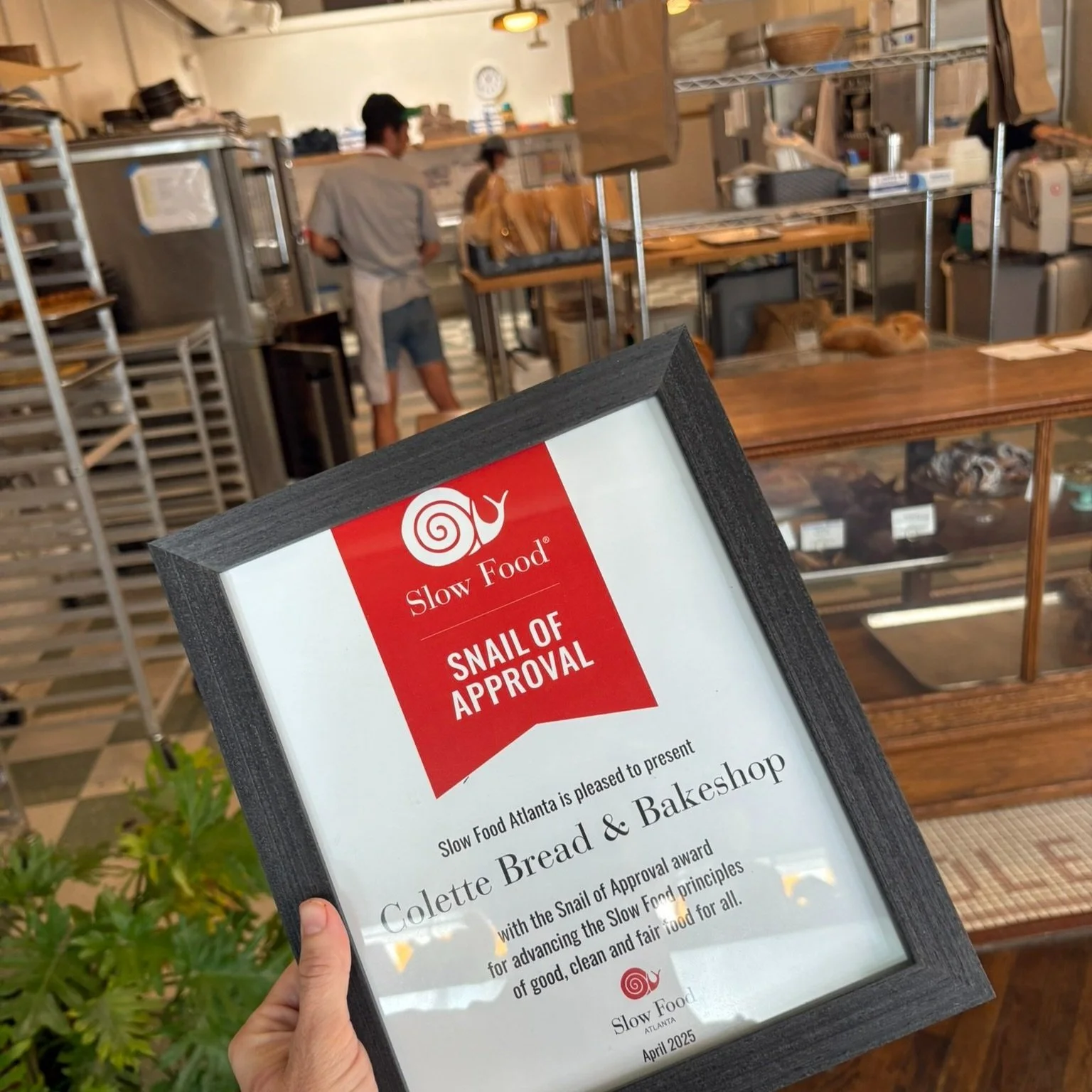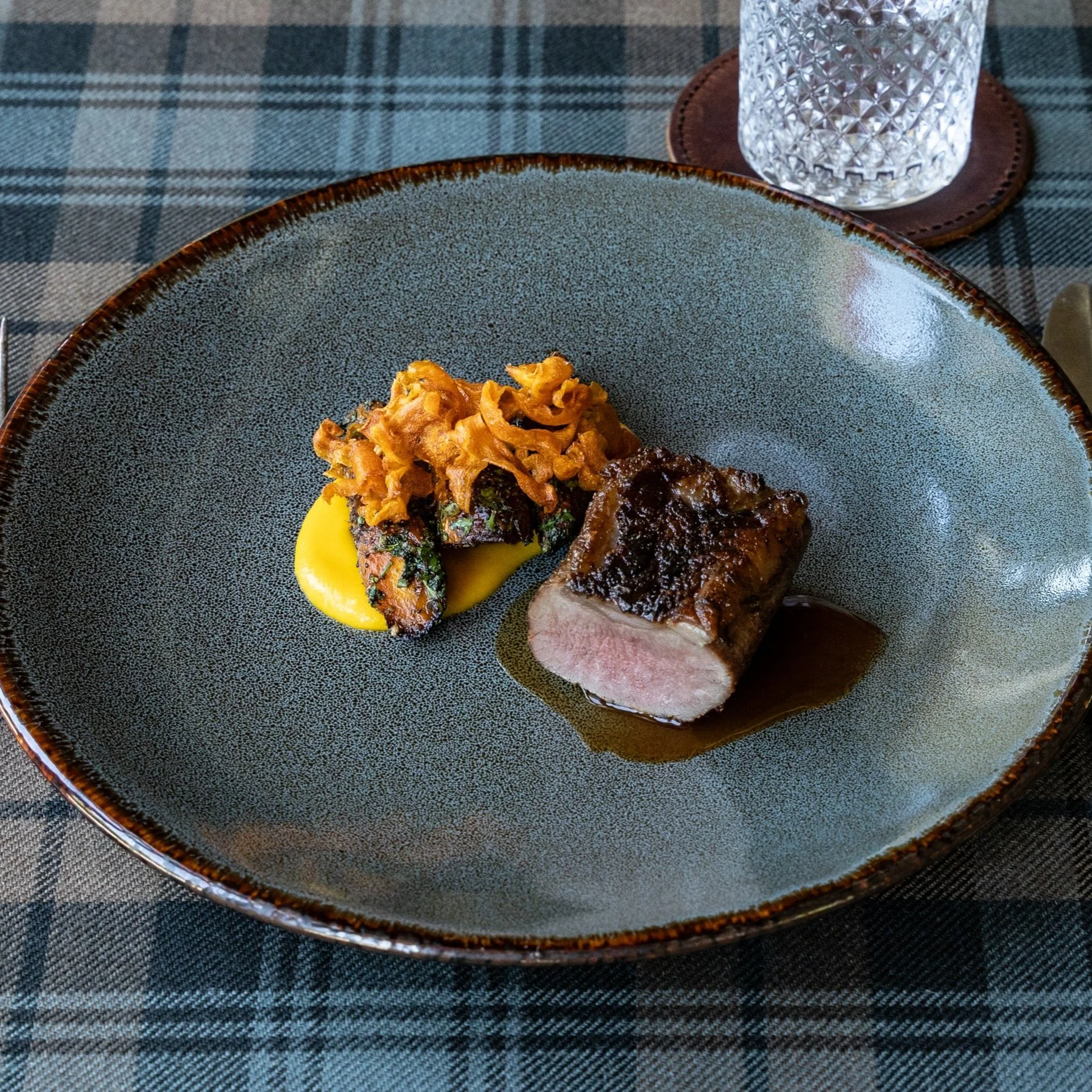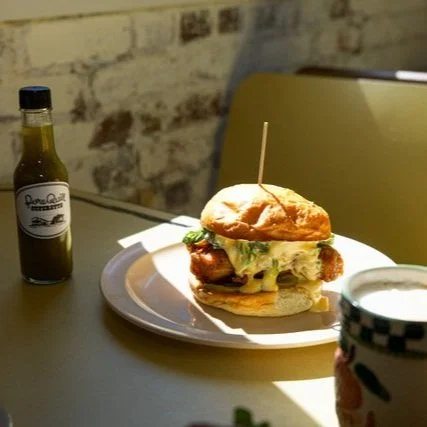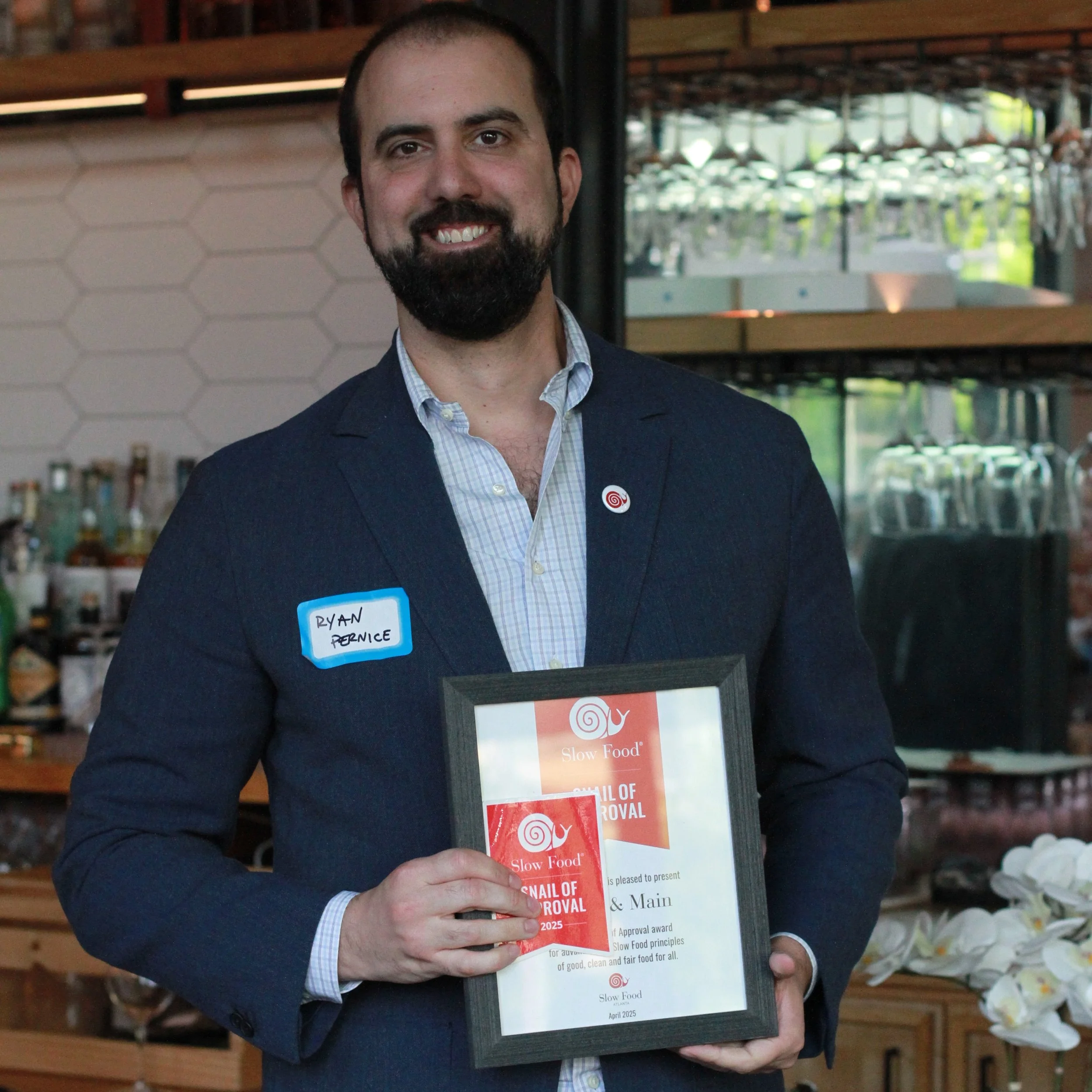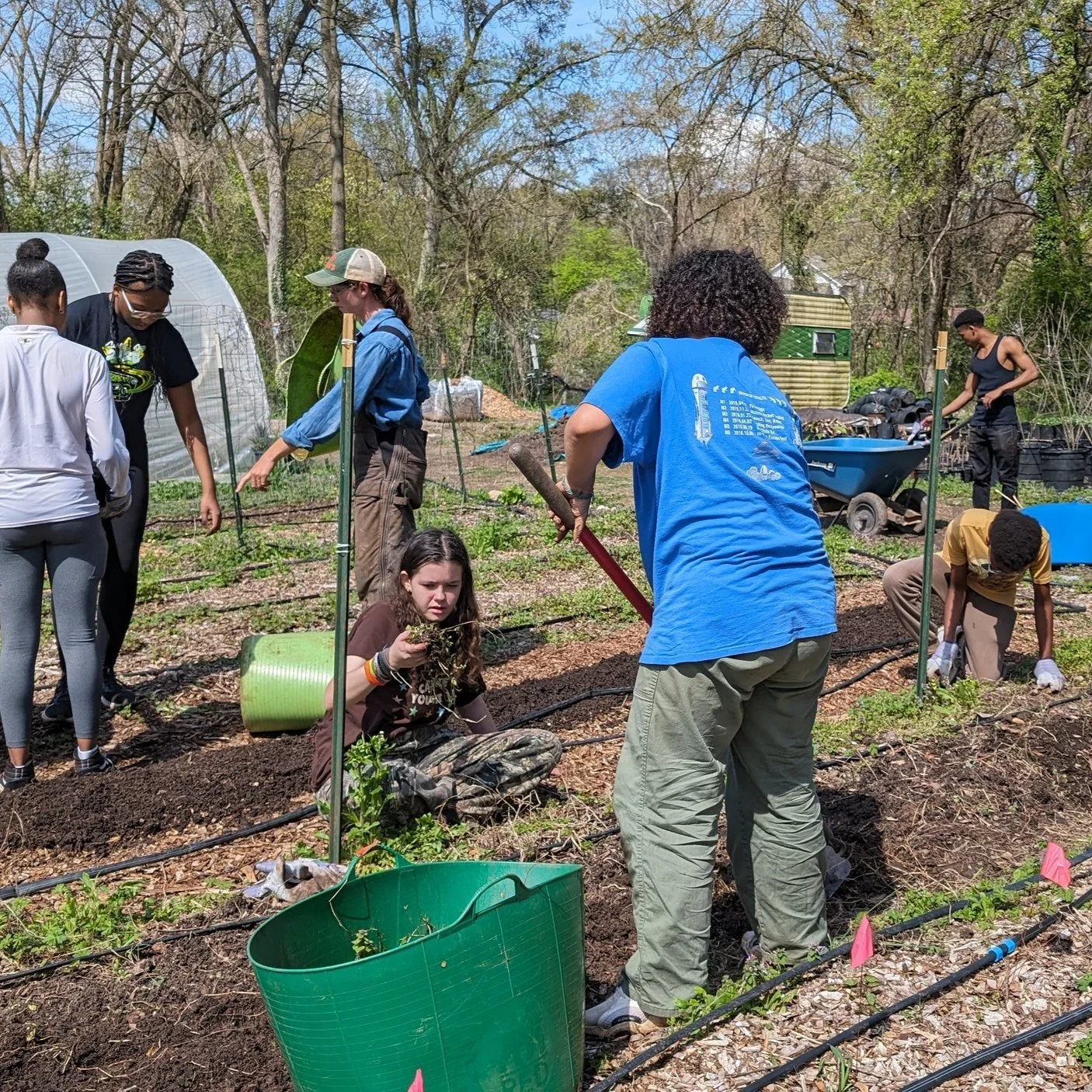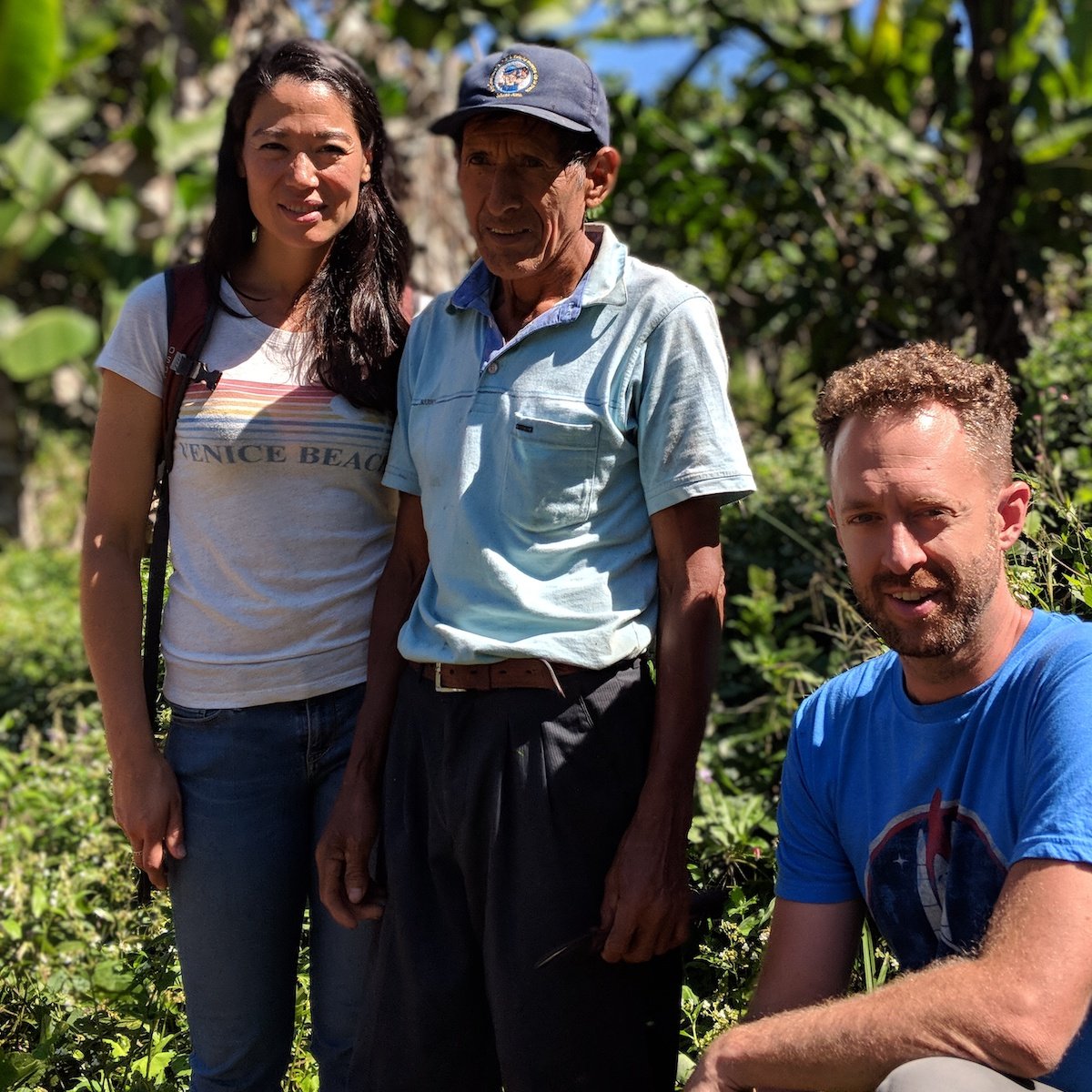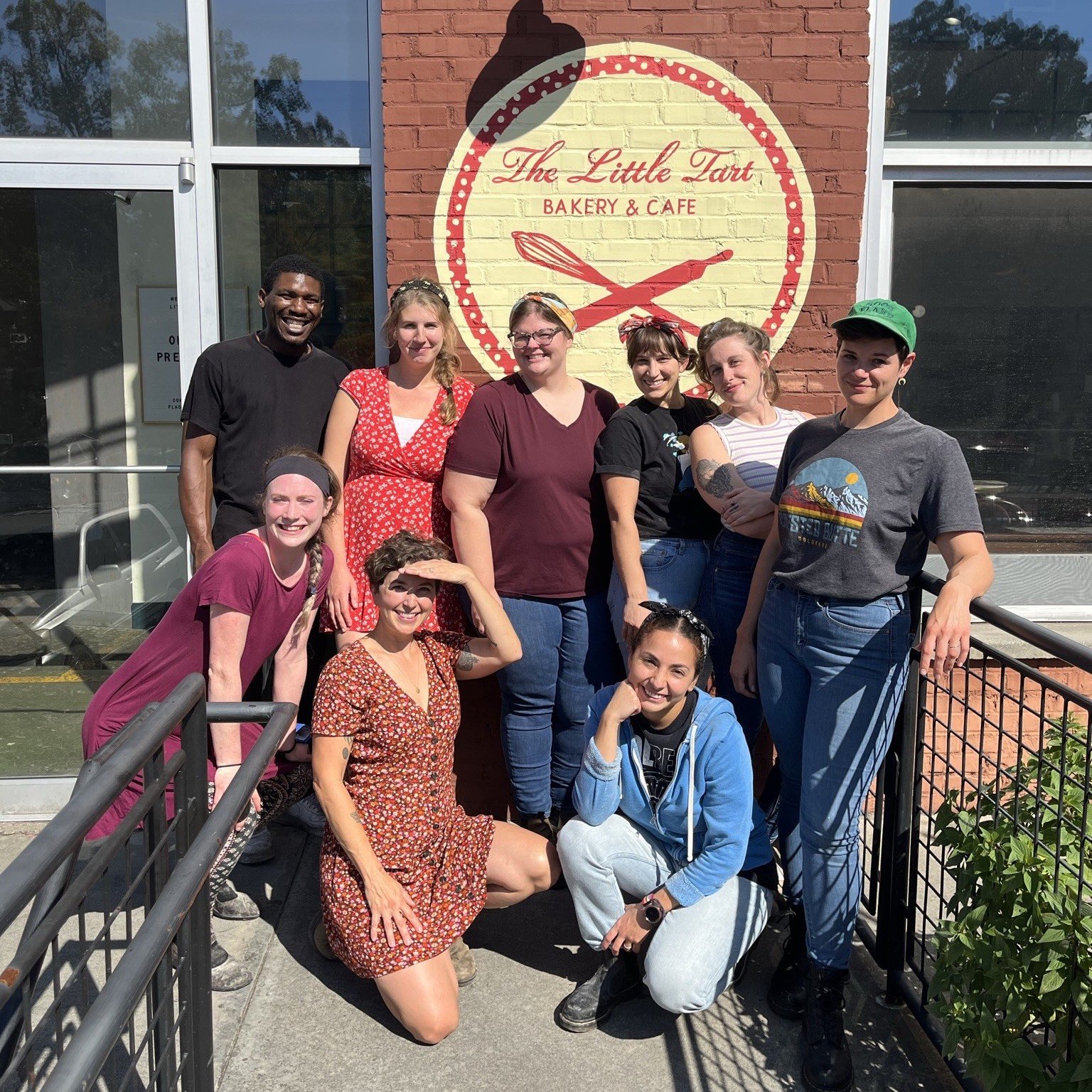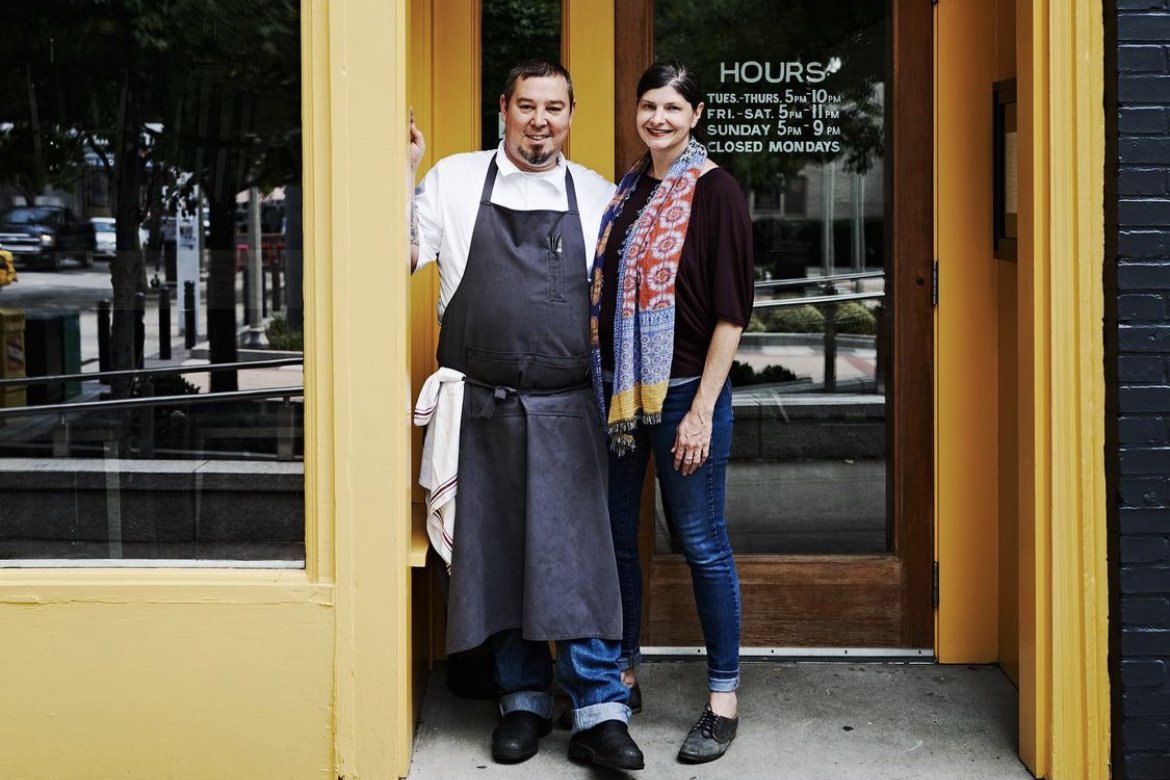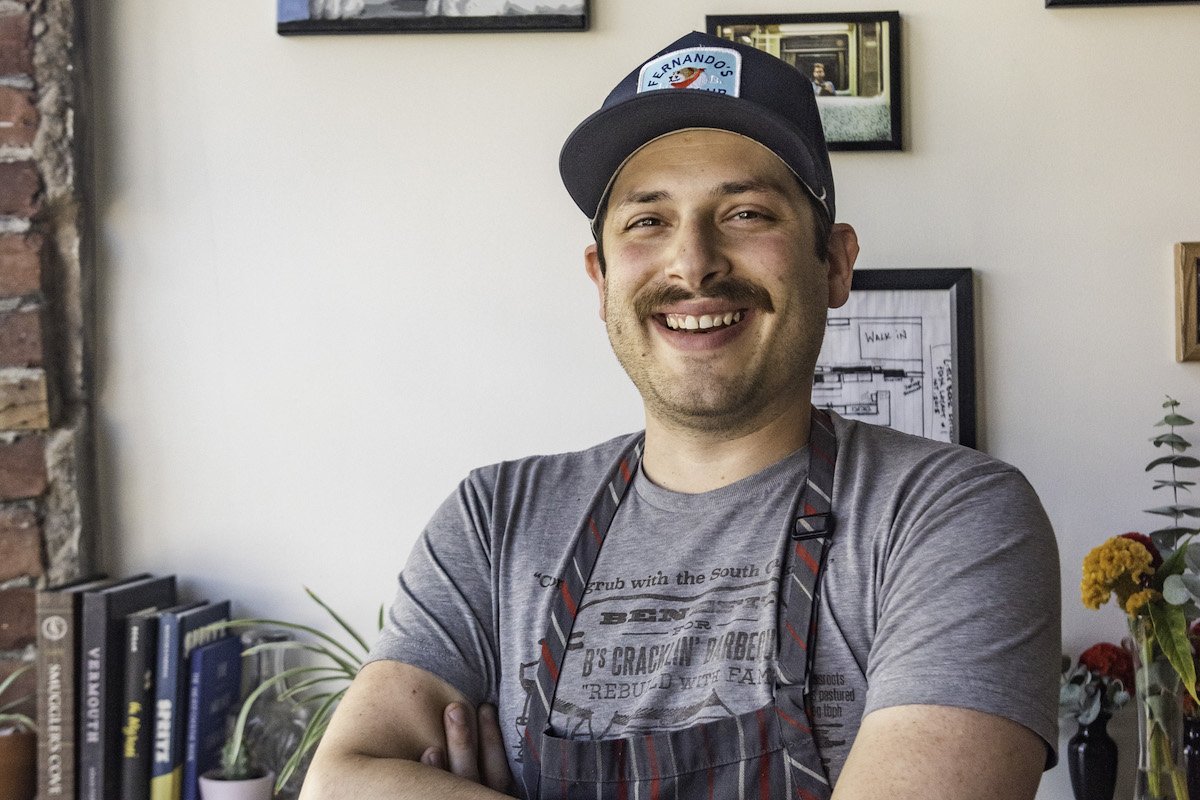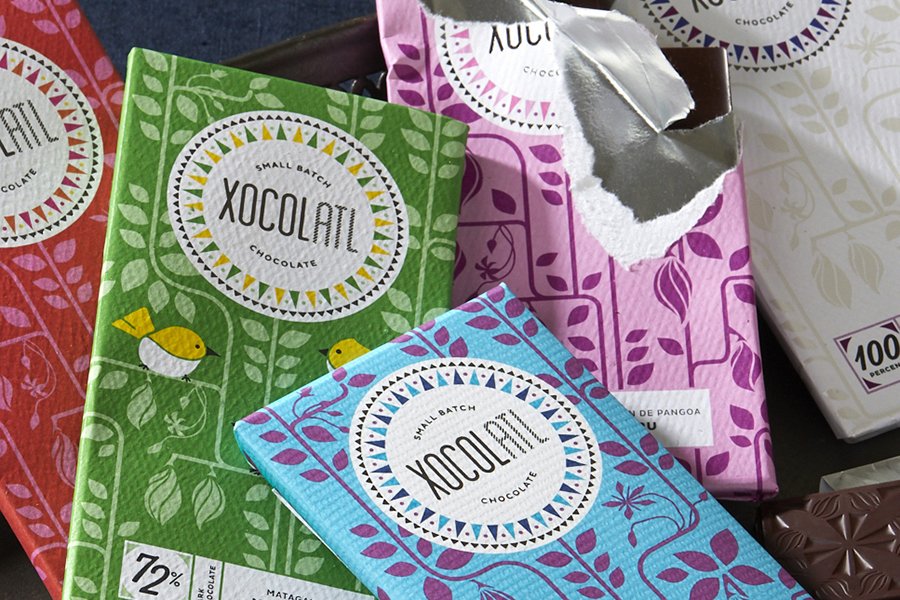Snail of Approval Winners for 2025!! 🐌
/GOOD, CLEAN, AND FAIR FOOD IN YOUR NEIGHBORHOOD AND BEYOND
The 2025 Recipients of the snail of approval award and the snail of support award gathered outdise of avize during the slow food Atlanta annual meeting.
WHAT IS THE SNAIL OF APPROVAL AWARD?
The Slow Food Snail of Approval award is a recognition given to food and beverage establishments whose business practices align with the principles of Slow Food. To win this award, a business must have a proven track record of excellence in their commitment to community involvement, environmental impact, local sourcing, staff support, cultural connection, and business values such as antiracism and anti-oppression. These leaders are selected annually by the Slow Food Atlanta chapter from a large pool of applicants, and have been proven to meet this criteria. They also make darn good food and products!
Recipients retain the Snail of Approval award for two years before they are required to apply for renewal.
MEET THIS YEAR’S WINNERS
This charming, whimsical café and bistro in the heart of the Inman Park neighborhood is known for its top-notch global cuisine and enchanting ambiance. This is a place where you come for “the biscuit” and stay for the Haitian risotto. Their fusion of flavors from the African diaspora, Europe, and beyond is ever present on the menu from top to bottom—including the craft cocktail menu!
For founder and CEO, Monica Sunny, chai is more than just a drink. It is a link to her culture and heritage. The business started out of a desire to share the traditions and rituals around chai that she experienced from a young age. The Chai Box blends are inspired by the various regions in India, they use sustainably sourced ingredients, and blend everything in small batches. They focus on minimizing food waste and single-use items in the production process. The Chai Box has also partnered with Compost Now to ensure their leftover tea and spices (“chai mulch”) is put to good use. They have contributed to over 6000 pounds of compost input so far!
After working at one of Osaka’s most prestigious restaurants for over 10 years, Chef Kiyoka was selected by the Japanese Consulate General in Atlanta to become their official chef. She yearned to find local vegetables, meat, and fish like she had access to in Japan. Now via Cheffrey’s Kitchen, Chef Kiyoka wants the community to experience the joining of Japanese cuisine with Atlanta’s locally grown produce. Her vision comes to life through making exquisite, accessible, and affordable bento boxes.
Located in the Poncey-Highland neighborhood, Colette Bread and Bakeshop is a community resource for both wholesale and retail clientele. Sarah Dodge has been a longtime champion of utilizing seasonal ingredients from community markets to incorporate into her pastries and naturally leavened breads. Her and her team’s delicious baked goods can be purchased during Colette’s retail hours, at the neighborhood farmer’s market, or at one of their wholesale partners. They also offer classes and events during the evenings. Follow their Instagram for the most up-to-date Colette info!
Ashley and Morgan, who started Galette, can be found whipping up a variety of small-batch, handmade pastries and breads at their bakeshop located in the heart of Avondale Estates. Their focus on using the best quality ingredients (often from local producers) and well-tested recipes ensures visitors are in for a delicious and memorable treat.
Heaps was born out of Jake Harvey’s desire to re-create the magic of a New Zealand pie, and to bring a bit of his culture and Whānau to the Atlanta community. At Heaps, he combines this food tradition with his love and knowledge of global cuisine. Heaps partners with local purveyors such as Riverview Farms, Southern Cap Mushrooms, Pine Street Market, and Love is Love Farm.
Kaluna Farm Retreats is a 92-acre haven located in the foothills of the Blue Ridge mountains. The property is comprised of forest, orchards, fields, and a mountain spring. They practice regenerative, chemical free farming techniques and focus on being good stewards of the land. They offer wellness retreats, family experiences, farm dinners, and more for those that want to get in touch with the natural, slow, good way of life.
Kimball House aims to serve food and drinks that reflect the seasons, farms, and personalities of the people preparing them. Located in Decatur, visitors can expect a top-notch raw bar and delicious farm-to-table fare executed with technique, finesse, and passion.
GREAT food, drinks, and atmosphere are in abundance at this Decatur staple. They’re all about the hospitality here. Leon’s Full Service focuses on supporting local farmers and small producers, taking care of their team, being a good member of the community, and giving to organizations like The Giving Kitchen.
At Nàdair, chef and restaurateur Kevin Gillespie draws inspiration from years of cooking in Atlanta, the Pacific Northwest, and his time spent with family in New England, Scotland and in the American South. Featuring refined, reimagined Scottish dishes and the bold flavors of woodfire cooking Gillespie is known for, Nàdair offers a three-course, price fixed menu, each course has multiple options to choose from. Authenticity, intentionality, sustainability and excellence are the guiding principles of the restaurant, which is set on the edge of Zonolite Park, a beautiful and quiet trail with gardens and streams.
PCF is an independently-owned urban farm sitting on 1.2 acres of land in the city of Atlanta. They are certified naturally grown and committed to growing safe, nutritious produce free of harmful chemical fertilizers, pesticides, and herbicides. They sell their weekly seasonal farmer shop and various community farmer’s markets. Jamila Norman, aka Farmer J, is internationally renowned for her work in urban agriculture and food activism. This includes serving as a US delegate to Slow Foods Terra Madre in Turin, Italy!
Prana Kitchens is founded on the ethos that Prana thrives when we eat mindfully, live consciously, and support our communities. Aruna and Sri believe that Prana flows through food that is farmed sustainably and cooked & eaten mindfully in accordance with unique constitutional (Prakriti) needs. By bringing these foods into your kitchen, they are creating healing and vitality for the body and the planet.
Hudson Rouse opened Pure Quill Superette in the summer of 2024, and it has since become a favorite Edgewood community spot. This neighborhood market and kitchen serves a variety of food, pantry staples, local products, grab-and-go items, and more! They were recently listed by Bon Appetit as one of the 14 best new breakfast restaurants in the US!
Located in the heart of Roswell’s historic district, Table and Main focuses on serving simple yet elevated, seasonal, Southern cuisine. The hospitality and the fried chicken are so good, they bring even the most ITP-only diners across 285!
Unearthing Farm and Market is a community green space in the heart of the city where visitors can come to wander, relax, buy produce and handmade goods, and find a team of people aiming to enrich the community. They believe good food should be for everyone, and farm organic, regionally specific produce and flowers to sell in their flex-pay farm stand. This means they don’t turn away any market shoppers for lack of funds. They also double EBT. They are committed to maintaining a workspace that prioritizes antiracism and inclusivity—uplifting marginalized voices and projects. This just scratches the surface. Check them out to learn more!
SNAIL OF APPROVAL AWARD RENEWALS
The following businesses have received a two-year renewal on their Snail of Approval awards:
Capella Cheese • The Deer and the Dove
Evergreen Butcher and Baker • Fresh Harvest
JenChan’s • Little Bear • Little Tart Bakeshop
Miller Union • The Spotted Trotter • Xocolatl
SNAIL OF SUPPORT GRANT RECIPIENTS
The Snail of Support is a microgrant program that provides financial assistance to support projects and initiatives that promote Slow Food values. These grants are awarded to individuals or businesses that went through the Snail of Approval application process and have shown exemplary commitment to the Slow Food objectives of good, clean, and fair food. These are “boots on the ground” folk working to promote the movement’s mission.
The GOOD award
The Tickled Pickler
The CLEAN award
Heaps Pies
The FAIR award
Kamayan ATL
The TOP MARKS award
Unearthing Farm and Market
